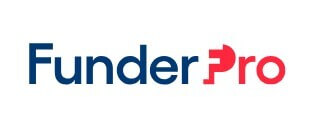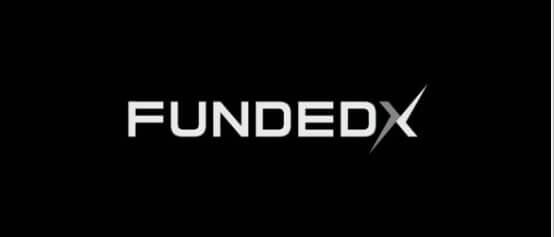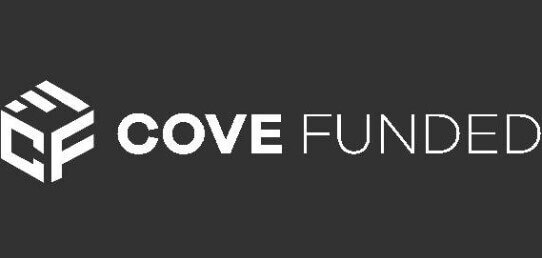World of Forex PropTrading: A Comprehensive Guide
Welcome to our guide on Forex proprietary trading. Whether you are a beginner or an experienced trader, this guide will give you valuable insights and strategies to succeed in the fast-paced and lucrative field of proprietary trading.
Top 5 Prop Firms
FunderPro

$5 Million Scale-Up Plan
2-phase Challenge
FundedNext
Trade with MT4 & MT5
Trade up to $300,000
Earn up to 95% of the profits
FundedX

No Time Limit
Two-step evaluation process
Cove Funded

TradeLocker available
2 Phase challenge
Crystal Funded

No Time Limit
2-step amplify
Best Forex Prop Firms
Overview of FTMO
| Criteria | Details |
| Evaluation Process | A 2-step process: FTMO Challenge and Verification, aimed at discovering talented traders. |
| Trading Capital | Offers FTMO Accounts with a balance of up to $200,000. |
| Profit Split | Receive up to 90% of profits upon meeting Scaling Plan conditions. |
| Trading Platforms | Provide MT4, MT5, DXTrade, and cTrader, with data from prime liquidity providers. |
Strengths
-
Two-Step Evaluation
Simplified evaluation process to help traders advance quickly.
-
Significant Trading Capital
Increased potential for profits due to substantial trading capital.
-
Flexible Profit Payouts
Customizable payout timings based on trader preferences.
Benefits
-
Supportive Resources
FTMO offers educational apps, Account Analysis, and Performance Coaches to help traders succeed.
-
Varied Trading Instruments
Access to trade Forex, Indices, Crypto, and Commodities.
-
Scaling Plan
Periodic increases in trading capital and profit share for consistent and profitable traders.
Trading Opportunities
FTMO provides excellent opportunities for traders who demonstrate talent and discipline. With substantial trading capital, supportive resources, and a favorable scaling plan, traders have the potential to achieve significant returns. It’s essential to assess the firm’s policies, trading conditions, and fees to make an informed decision, when choosing a proprietary trading firm that fits your needs.
Analysis of The5%ers
| Criteria | Details |
| Programs | Three types: Bootcamp, Hyper Growth, and High Stakes, each tailored for different risk levels. |
| Trading Capital | Offers accounts with a balance scaling up to $4,000,000. |
| Profit Split | Traders keep a significant percentage of profits, with rates varying by program. |
| Trading Platforms | Operate with MT5 and provide high-quality market execution. |
Strengths
-
Several Program Options
Provides a variety of programs catering to different trading strategies and risk appetites.
-
Large Trading Capital
Significant trading capital leads to higher earning potential.
-
Fast Growth Plan
Ability for account size to double at each milestone.
Benefits
-
Helpful Resources
Traders have access to educational materials, webinars, and 1-on-1 performance coaching.
-
Flexible Trading Styles
The fund welcomes all trading strategies, providing flexibility.
-
Continuous Payouts and Growth
Simultaneous profit payouts and account growth for achieving milestones.
Trading Opportunities
The5%ers present attractive opportunities for committed and consistent traders, thanks to their significant trading capital and unique programs. However, it’s integral for potential traders to analyze all elements, such as trading conditions, profit splits, and requirements to reach milestones, to make the best-informed decision.
Analysis of FunderPro
| Criteria | Evaluation Process | Trading Capital | Profit Split | Trading Platforms |
| FunderPro | Evaluation-funded account program | Lower-risk | Up to 80% | Proprietary platform |
Strengths:
-
Evaluation-Funded Account Program
FunderPro offers a program where traders can showcase their skills without risking their own capital.
-
Lower Risk
The evaluation-funded account program provides a safer environment for trading activities.
-
Profit Split
Traders can keep up to 80% of their profits, giving them the potential for higher earnings.
Trading Opportunities:
- Forex Trading: FunderPro provides traders with access to the Forex market.
Benefits:
-
Lower-risk trading
FunderPro’s evaluation-funded account program allows traders to engage in trading with reduced risk.
-
Profit potential
Traders have the opportunity to retain up to 80% of their profits, potentially leading to higher earnings.
Forex Prop Firms Comparison
Below is a concise comparative table of the key features, trading options, and funding programs of the 3 most popular Forex proprietary trading firms:
| Forex Proprietary Trading Firm | FundedNext | FunderPro | Tradiac |
| Trading Capital | Varies based on evaluation | Varies based on evaluation | Varies based on evaluation |
| Trading Limits | Restrictions on certain strategies | Unspecified | Unspecified |
| Risk Management | Custom risk management tools available | Unspecified | Risk management protocols in place |
| Trading Platforms | MT4 | Proprietary platform | Proprietary platform |
| Trading Options | Forex, indices, commodities | Forex, stocks, cryptocurrencies | Forex |
| Performance Metrics | Unspecified | Unspecified | Average monthly return: 5% – 10% |
| Fees | Monthly fees, profit sharing | Unspecified | Monthly membership fee |
| Funding Programs | Multiple evaluation phases for increased funding | Unspecified | Unspecified |
| Support and Education | Professional mentorship, training materials | Unspecified | Trading community, educational resources |
| Evaluation Process | Multiple evaluation phases | 2-phase challenge | Unspecified |
| Key Features | Custom risk management tools, professional mentorship, training materials | Fast trade execution, better pricing, quick payout | Risk management protocols in place, trading community, educational resources |
| Profit Split (Range) | 50% – 80% | Up to 80% | 70% – 80% |
Note that this comparison is based on the information available on the respective websites. The suitability of a prop trading firm depends on your trading strategies and goals. It’s recommended to thoroughly explore each firm’s contract terms, trading conditions, and support structure to ensure they align with your particular needs.
What are Prop Firms?
Concept of Proprietary Trading Firms
Proprietary trading firms, often referred to as “Prop Firms,” are specialized organizations in the financial industry that trade stocks, forex, commodities, derivatives, and other financial instruments using the firm’s capital rather than that of clients. This permits these firms to take on high-risk, high-reward trades without risking client funds.
Role in Financial Markets
Prop firms serve as crucial liquidity providers in financial markets. By constantly buying and selling securities, these firms ensure that the markets function smoothly, with minimal delays when executing trades. In essence, they act as intermediaries that assist the steady movement of assets, fostering price stability and market efficiency.
Foundational Understanding of Prop Trading
In proprietary trading, traders aim for direct gains from their trades rather than commissions on clients’ investments. Success requires a deep understanding of market mechanics, risk management, and financial asset analysis. It’s a high-stakes field that offers tremendous rewards for success but also the potential for substantial losses.
How Do Forex Prop Firms Work?
Operational Mechanisms of Forex Proprietary Trading Firms
Forex proprietary trading firms operate in the following manner:
Capital Provision
These firms provide traders with the capital needed to engage in high-volume currency trading.
Risk Management
Prop firms apply stringent risk management policies to mitigate potential losses from trades, including stop losses and drawdown limits.
Profit Sharing
The profits from the trades are split between the firm and the trader according to a predetermined agreement or split ratio.
Training and Support
Many prop firms provide their traders with training and daily trade support, including market analysis and trading strategies.
Interaction Between Traders and Prop Firms
Traders can start at Prop firms in a number of ways:
Application and Assessment
Traders usually begin by applying to join a prop firm, often undergoing a rigorous assessment of their trading skills and knowledge.
Training
Once accepted, traders can receive in-depth training to understand the firm’s strategies, risk management parameters, and trading platforms.
Trading
Traders then use the firm’s capital to perform trades in the forex markets.
Relationship Between Traders and Prop Firms
In Proprietary Trading, the relationship between traders and firms is a symbiotic one:
- The firm provides traders with the resources they need, such as trading capital, training, and a supportive infrastructure. Traders are allowed to work remotely and have flexible schedules.
- The trader contributes their skills and time to generate profits for the firm. The traders are rewarded based on their performance through a share of the profits made.
Are Forex Prop Firms Legal?
Legal Aspects of Forex Proprietary Trading Firms
Forex trading firms are legal entities subject to the financial regulations of their jurisdictions. There are some key points to consider in relation to their legality:
- Forex trading is legal and regulated in most countries.
- Prop firms are required to follow the laws, rules, and guidelines established by the regulatory bodies overseeing their operation.
- Transparency, ethical practices, and client protection are critical aspects enforced by regulators when monitoring prop firms.
Regulatory Compliance and Licensing
Forex prop firms must adhere to the regulations established by financial bodies in order to maintain their legality, including:
Licensing
Obtaining appropriate licenses and registration from regulatory authorities, such as the Financial Conduct Authority (FCA) in the UK or the National Futures Association (NFA) and Commodity Futures Trading Commission (CFTC) in the US.
Capital Adequacy
Ensuring sufficient capital to back the firm’s trading activities and absorb potential losses.
Periodic Reporting
Submitting regular financial reports and audits to oversee compliance and solvency.
AML and KYC
Implementing Anti-Money Laundering (AML) and Know Your Customer (KYC) policies to prevent fraudulent activities and maintain transparency.
Understanding the Legitimacy of Prop Firms
It is crucial to distinguish between legitimate and fraudulent prop firms. Here are some facts to help you identify a legitimate Forex Prop Firm:
- Verify the firm’s registration and licensing with relevant regulatory bodies.
- Look for a clear record of complying with financial regulations and industry best practices.
- Check for a history of successful traders who have been a part of the firm.
- Evaluate the firm’s risk management policies and transparency.
- Research online reviews, testimonials, and community feedback to gauge the firm’s reputation among traders.
By keeping these points in mind, you can go through the world of Forex proprietary trading with confidence, ensuring that your dealings are with legitimate and reputable trading firms.
How to Choose a Forex Prop Trading Program
Guidance For a Right Forex Proprietary Trading Program
Choosing the right Forex trading Program is crucial to your success in this field. Before selecting a program, it’s essential to thoroughly research and evaluate each option, ensuring that it aligns with your trading goals and preferences.
Essential Factors to Consider
When assessing Forex prop trading programs, keep these factors in mind:
Funding Options
Analyze the funding options offered by the prop firm, including capital allocation, profit sharing, and trading limits. Ensure that these align with your financial goals and expectations.
Risk Management
Review the firm’s risk management policies, such as stop loss and drawdown limits, to ensure they align with your own approach to risk tolerance.
Trading Strategies
Evaluate the trading strategies provided by the prop firm, considering whether they are consistent with your trading style and if they have a proven track record of success.
Education and Support
Assess the quality of training, education, and support provided by the firm to help you grow and succeed as a trader.
Reputation and Regulation
Examine the importance of the prop firm, ensuring that a respected financial authority regulates it and has a strong track record of satisfied traders.
Tips on Making an Informed Choice
Armed with the knowledge of what to look for in a Forex prop trading program, consider the following tips to help you make an informed choice:
-
Research
Conduct thorough research on various prop firms, seeking out unbiased reviews, testimonials, and comments from the trading community to help guide your decision.
-
Narrow Your Options
Create a shortlist of prop firms that align with your trading preferences and requirements.
-
Compare
Compare the features, benefits, and drawbacks of each shortlisted firm in-depth, weighing them against each other to determine the most suitable option.
-
Contact
Reach out to the prop firms directly, asking any additional questions you might have and gauging their responsiveness and support quality.
-
Trial Period
Opt for a trial period or a demo account to test the trading platform, strategies, and support quality before committing long-term to a specific prop firm.
How Do I Become a Prop Trader?
Boarding on a career as a Proprietary Trader can offer rewarding opportunities. However, it demands dedication, skill, and in-depth knowledge. Here, we break down the process, detailing the steps, skills, and insights required to make the journey.
Steps and Requirements for Becoming a Proprietary Trader
The path to becoming a successful Proprietary Trader generally involves the following steps:
-
Education
A degree in finance, economics, business, or a related field can provide a helpful foundation, though it’s only sometimes required. Meanwhile, understanding of financial markets and instruments, economic concepts, and trading principles is fundamental.
-
Trading Experience
Some personal trading experience, such as trading stocks, forex, or commodities, is usually necessary. This can often involve paper trading or trading with a personal account to develop a sound understanding of the markets.
-
Licensing
Depending on jurisdictions, acquiring appropriate licenses (e.g., Financial Industry Regulatory Authority (FINRA) in the US) may be required. These licenses will typically necessitate passing exams that demonstrate your knowledge of securities markets and trading rules.
-
Apply
Once ready, you can start applying to proprietary trading firms. The application might include submitting your personal trading records and a statement of your trading philosophy.
Skills, Knowledge, and Resources Needed
To be a successful prop trader, you’ll need:
Trading Skills
Proficiency in technical analysis, charting, and understanding the reactiveness of markets to news events.
Risk Management
Understanding of strategies to limit losses while maximizing gains.
Quantitative Skills
Ability to interpret and quickly calculate trading and market data.
Psychological Stamina
Ability to withstand market pressure and make effective decisions under stress.
Application and Evaluation Process
When applying to become a Prop Trader, firms generally have a multi-stage interview process:
Initial Application
You submit your application, possibly along with proof of your trading experience and success.
First Interview
Typically, an overview of your knowledge, trading philosophy, and approach to risk.
Trading Exam/Simulation
You may be asked to perform simulated trades while the firm evaluates your decision-making process.
Final Interview
If you perform well in all previous stages, you’ll be invited to a last interview, typically with senior traders or executives.
Once you pass the evaluation process and receive an offer, you’ll typically undergo a period of training and mentorship where you learn the particular trading strategies and platforms of your firm.
Remember, becoming a Prop Trader is not a decision to be taken lightly. Thoroughly evaluate your readiness and resolve, and measure these against the high-risk, high-reward nature of this profession.
How Do Prop Traders Make Money?
In the competitive arena of proprietary (prop) trading, understanding the means and methods by which prop traders generate income is crucial. Subsequent sections explore the income models, the intricacies of compensation structures, and considerations for maximizing earnings.
Income Models for Proprietary Traders
Prop traders operate differently from traditional investors due to their employment by a prop trading firm, trading the firm’s capital to make profitable deals. The income model for prop traders primarily consists of:
Salaries
Some prop trading firms pay their traders a base salary, which can vary significantly based on factors such as experience, location, and firm size.
Performance-Based Incomes
These traders typically earn a significant portion of their income from a part of the profits they make trading. This means their earnings are primarily dependent on their performance.
Profit-Sharing Arrangements and Compensation Structures
Comprehending the intricacies of compensation structures and profit-sharing arrangements is central to understanding how prop traders earn. Here are the primary forms of compensation:
-
Profit-sharing
In a profit-sharing structure, these traders receive a portion of the profits they generate. This percentage can vary from firm to firm, commonly ranging from 50% to 90%.
-
Salary Plus Performance Bonuses
Some firms offer a modest base salary along with a performance bonus. The bonus is usually a percentage of the trading profits above a specific target or benchmark.
-
Graduated Profit-Sharing
Some firms may offer a graduated profit-sharing plan. In this scenario, a trader might earn a higher percentage of the profits as their profits grow larger.
Maximizing Earnings as a Prop Trader
Maximizing earnings as a prop trader hinges largely on improving trading performance and understanding the financial dynamics of the role:
-
Develop Effective Trading Strategies
Prop traders who consistently earn profits typically use sound, time-tested trading strategies.
-
Manage Risk Effectively
Successful traders understand the importance of risk management and the balance between risk and reward.
-
Understand Your Compensation Structure
To maximize earnings, it’s crucial to thoroughly understand your compensation structure and work within its confines to optimize your trading performance.
-
Pursue Continuous Learning
The financial markets are constantly evolving. By staying informed about market trends and refining your skills, you can maintain an edge.
Proprietary trading offers an exciting career pathway with the potential for significant earnings, and understanding the modes and methods of earning is the first step in the journey to success.
Prop Firm Trading Fees
As one navigates the intricate world of forex trading with proprietary firms, understanding the various associated costs is a critical step toward informed decision-making.
Various Fees Associated with Proprietary Trading Firms
In the context of proprietary trading firms, a multitude of fees can apply. These costs can significantly influence your profitability and should be carefully considered before joining a prop firm.
Here are the three main costs that you can expect:
Commissions
These fees are paid to the brokers that handle the trades. They can vary significantly between firms, depending on the volume of transactions, the type of securities traded, and other specific contractual agreements.
Spreads
Spread costs, the difference between the bid and the ask price, are inevitable in forex trading. They vary depending on liquidity, volatility, and the overall trading environment.
Platform and Data Fees
Prop firms often provide advanced trading platforms and real-time access to market data, which incur costs. The specific amount will depend on the chosen venue and the level of data access.
Understanding the Financial Implications
A keen understanding of the costs above is imperative as these directly influence your profitability.
Commissions
Higher brokerage commissions can significantly dent your profits, especially if you are a high-frequency trader.
Spreads
Wider spreads imply higher trading costs. It is in a trader’s best interest to work with firms that offer lower spreads.
Platform and Data Fees
Although these may provide valuable trading insights, they must be rationalized against the potential earnings.
Always consider these costs in the light of your trading strategy. For high-frequency systems, lower commissions and spreads are vital, whereas, for strategies that leverage real-time market data, sophisticated trading platforms might hold more relevance.
Critical to this purpose is a thorough assessment of your trading framework and potential profitability against the associated costs of a likely prop trading firm. It’s not about finding a firm with the lowest costs but one where the costs justify the benefits and align with your trading strategy.
What are the Risks Involved with Proprietary Firms?
Despite the potential returns and profits, working with proprietary firms is not without risk. Below, we identify, assess, and derive strategies to mitigate these risks.
Identifying and Assessing the Risks Associated with Prop Trading
The predominant risks associated with proprietary trading focus on financial exposure, inherent market volatility, and the individual trader’s ability (or inability) to manage risk effectively:
-
Financial Loss
Trading, especially in active markets like forex, involves the inherent risk of financial loss.
-
Market Volatility
Markets frequently fluctuate and shift due to numerous factors, including economic indicators, geopolitical events, and industry-specific news.
-
Capital Allocation
The firm’s ability to correctly allocate capital to traders and trading strategies is a significant risk factor. A trader that generates substantial profits may be given higher risk limits, further increasing exposure.
Market Volatility, Capital Allocation, and Risk Management
Mitigating these risks involves strategic management of volatility, capital allocation, and risk:
-
Understanding Market Volatility
Traders should keep abreast of economic indicators and market trends to anticipate potential market swings and adjust their trading strategies.
-
Capital Allocation
Firms must allocate capital and assign risk limits judiciously, preventing disproportionate risk concentration with any single trader.
-
Implementing Effective Risk Management
Proprietary traders need to use proven risk management techniques to protect profits and limit losses. This includes setting predetermined loss limits and investing only what is ready to lose.
Strategies for Mitigating Potential Downsides
To minimize potential downsides in proprietary trading, consider the following strategies:
-
Education and Training
Building a solid foundation of trading knowledge can help navigate the volatility of the financial markets.
-
Risk Diversification
Spreading risk across multiple assets and strategies can help limit exposure to any single market or investment.
-
Use of Stop Losses
Employing stop losses can help limit potential losses on given trades.
As with any profession, prop trading poses certain risks, but armed with the right strategies and insights, traders can mitigate these potential downsides.
Pros & Cons of Prop Trading
Proprietary trading provides unique opportunities in the financial world, blending the thrill of the markets with the realities of a career in finance. However, as with any profession, it comes with its own distinct advantages and disadvantages, which must be understood for an informed decision.
Advantages and Disadvantages of Prop Trading
Advantages
-
Access to Capital
Prop traders leverage the firm’s capital, offering the potential for greater profits than trading with personal resources.
-
Sophisticated Tools and Infrastructure
Prop firms usually provide traders with superior technology, market data, and trading infrastructure, which can prove vital in fast-paced markets.
-
Learning and Development
Prop firms often have an environment conducive to learning and development, offering training sessions, mentorship, and interaction with seasoned traders.
-
Earning Potential
Successful prop traders may have the opportunity to earn substantial income, particularly in profitable years.
Disadvantages
-
Financial Risk
Prop trading involves inherent financial risk. Poor trading performance could lead to significant losses.
-
High Pressure
Trading can be high-stakes and high-pressure, requiring decision-making in stressful and uncertain situations.
-
Performance-Based Compensation
While placing a ceiling on earning potential, performance-based compensation can also mean low or even zero earnings during a period of poor trading.
-
Job Security
The performance-oriented nature of the job could leave prop traders at risk if they fail to generate profits consistently.
Highlighting Benefits and Drawbacks of a Career in Prop Trading
Indeed, pursuing a career in proprietary trading is not for the faint-hearted, and one must broadly consider the above pros and cons while considering one’s personal aptitude, liking for financial markets, and risk tolerance.
Through the lens of benefits, one sees the potential for high rewards, access to substantial capital for trading, state-of-the-art facilities, and a thriving environment for learning. On the other hand, the drawbacks – pronounced financial risk, stressful work conditions, variable compensation, and job security – underline the potential challenges one might face.
Weighing Options Effectively
In light of the comprehensive view shared above, it is essential to carefully assess these factors in the context of your situation and career aspirations. Here are a few questions to guide your decision:
- Do you have the mental strength and discipline to handle the pressure of trading?
- Can you manage the inherent financial risks involved?
- Does the opportunity for significant monetary gain outweigh the risks and stress involved?
- Are you prepared for the potential financial instability due to performance-based compensation?
Remember, proprietary trading offers a unique career pathway rich with potential rewards and challenges. As with any significant decision, assess your options, conduct due diligence, and consult trusted advisors to make an informed choice.
Author Opinion
The world of Forex proprietary trading is both rewarding and risky. The key findings from this article include:
- Prop traders primarily earn from salaries and a share of their trading profits.
- Prop trading involves risks such as financial loss, market volatility, and capital allocation.
- Strategies such as education, risk diversification, and stopping losses can mitigate these risks.
- Prop trading presents opportunities like access to significant capital and sophisticated trading tools as well as challenges, including high-pressure situations and variable income.
Forex proprietary trading, while offering considerable earning potential and access to capital, involves inherent market risks. Factual knowledge, continuous learning, and effective risk management strategies are therefore paramount for success in this field.


